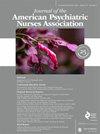Nurse Practitioner Certification Examination Development: From Reflecting Clinical Practice to Ensuring Lifelong Learning
IF 1.5
4区 医学
Q3 NURSING
Journal of the American Psychiatric Nurses Association
Pub Date : 2024-04-05
DOI:10.1177/10783903241240075
引用次数: 0
Abstract
OBJECTIVE:Certifications in psychiatric-mental health nursing promote safe practice by psychiatric-mental health nurse practitioners (PMHNPs) and nurses (PMHNs) and help protect the public from harm. This protection begins with the development of an examination that meets rigorous national education, practice, and accreditation standards and reflects PMHNPs’ or PMHNs’ clinical practice. Achievement and maintenance of a certification is a journey that involves a commitment to lifelong learning and the improvement of the field of psychiatric-mental health nursing through involvement in the examination process.METHODS:This discussion paper outlines the role nurses can play in the development of certification examinations. It describes the process of developing an effective certification examination, including the role of standards, accrediting bodies, and content experts; determining necessary tasks, knowledge, and skills; surveying practitioners to validate information; writing test questions; and ongoing analysis of examination content. The Psychiatric-Mental Health Nurse Practitioner (across the lifespan) Certification (PMHNP-BC) is presented as an example of the process.RESULTS:This discussion paper raises awareness of how certification exams are developed, PMHNPs participate in certification development, and volunteering promotes career development.CONCLUSION:The PMHNP-BC examination is based on education, practice, and certification accreditation standards and reflects current clinical practice. PMHNPs can (a) point to the rigor of certification as an indication of the quality of care they deliver, (b) volunteer to participate in the examination process to ensure examination rigor, and (c) advance their careers through the development and application of a valuable skill set.执业护士认证考试开发:从反映临床实践到确保终身学习
目标:精神心理健康护理认证促进精神心理健康执业护士(PMHNPs)和护士(PMHNs)的安全执业,帮助保护公众免受伤害。这种保护始于考试的开发,考试应符合严格的国家教育、实践和认证标准,并反映精神心理健康执业护士(PMHNPs)或精神心理健康护士(PMHNs)的临床实践。方法:本讨论文件概述了护士在制定认证考试中可以发挥的作用。它描述了开发有效认证考试的过程,包括标准、认证机构和内容专家的作用;确定必要的任务、知识和技能;调查从业人员以验证信息;编写试题;以及对考试内容的持续分析。结果:本讨论文件提高了人们对认证考试如何开发的认识,PMHNP参与了认证开发,志愿服务促进了职业发展。结论:PMHNP-BC考试基于教育、实践和认证认可标准,反映了当前的临床实践。PMHNP 可以:(a)将认证的严格性作为他们所提供护理质量的标志;(b)自愿参与考试过程以确保考试的严格性;(c)通过开发和应用一套有价值的技能来促进他们的职业发展。
本文章由计算机程序翻译,如有差异,请以英文原文为准。
求助全文
约1分钟内获得全文
求助全文
来源期刊

Journal of the American Psychiatric Nurses Association
NURSING-PSYCHIATRY
CiteScore
5.30
自引率
0.00%
发文量
65
期刊介绍:
The Journal of the American Psychiatric Nurses Association (JAPNA) is a peer-reviewed bi-monthly journal publishing up-to-date information to promote psychiatric nursing, improve mental health care for culturally diverse individuals, families, groups, and communities, as well as shape health care policy for the delivery of mental health services. JAPNA publishes both clinical and research articles relevant to psychiatric nursing. This journal is a member of the Committee on Publication Ethics (COPE).
 求助内容:
求助内容: 应助结果提醒方式:
应助结果提醒方式:


